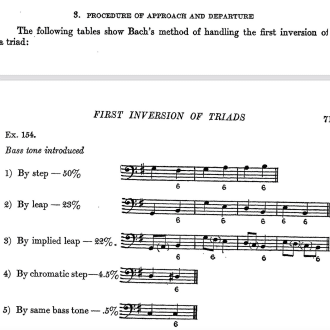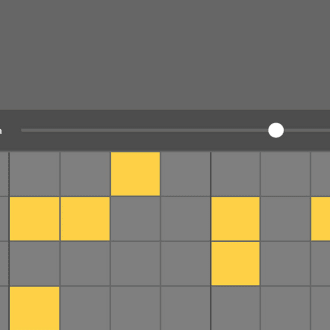
7 Best Articles on Music Theory
The most useful articles on music theory from around the web, curated by thought leaders and our community.
Refind focuses on timeless pieces and updates the list whenever new, must-read articles or videos are discovered.
Top 5 Music Theory Articles
At a glance: these are the articles that have been most read, shared, and saved on music theory by Refind users in 2024 so far.
Videos
Watch a video to get a quick overview.
Learn music theory in half an hour.
20 more lessons like this about music production, songwriting, mixing, mastering, and more: http://learnmonthly.com/andrew Subscribe → http://bit.ly/subAndre...
Short Articles
Short on time? Check out these useful short articles on music theory—all under 10 minutes.
Music Theory Cheat Sheet: Keys, Scales, Chords & Notes
An interactive music theory cheat sheet with scales, diatonic chords, notes on the piano, notes on the staff and key signature for all major and minor keys.
Music theory 101: notes, intervals, scales and chords explained
Best of 2022: The basic nuts and bolts of music from a piano roll perspective
Did Bach "invent" the rules of music theory? — Michael Berry
(I posted this on my clock app page too…) In a previous video, I mentioned that I had a theory about where this “Bach created the rules of theory” idea came from. Allow me to introduce you to Allen…
Music Theory for the 21st-Century Classroom
Music Theory for the 21st–Century Classroom is an openly–licensed online four–semester college music theory textbook. This text differs from other music theory textbooks by focusing less on four–part (SATB) voiceleading and more on relating harmony to the phrase.
Get started making music
In these lessons, you'll learn the basics of music making. No prior experience or equipment is required; you'll do everything right here in your browser. To get started, check out the boxes below.…
Long Articles
These are some of the most-read long-form articles on music theory.
Music theory for nerds / fuzzy notepad
Not music nerds, obviously. I don’t know anything about music. I know there are letters but sometimes the letters have squiggles; I know an octave doubles in pitch; I know you can write a pop song with only four chords. That’s about it. The rest has always seemed completely, utterly arbitrary. Why do we have twelve notes, but represent them with only seven letters? Where did the key signatures come from? Why is every Wikipedia article on this impossible to read without first having read all the
What is Refind?
Every day Refind picks the most relevant links from around the web for you. Picking only a handful of links means focusing on what’s relevant and useful.
How does Refind curate?
It’s a mix of human and algorithmic curation, following a number of steps:
- We monitor 10k+ sources and 1k+ thought leaders on hundreds of topics—publications, blogs, news sites, newsletters, Substack, Medium, Twitter, etc.
- In addition, our users save links from around the web using our Save buttons and our extensions.
- Our algorithm processes 100k+ new links every day and uses external signals to find the most relevant ones, focusing on timeless pieces.
- Our community of active users gets the most relevant links every day, tailored to their interests. They provide feedback via implicit and explicit signals: open, read, listen, share, mark as read, read later, «More/less like this», etc.
- Our algorithm uses these internal signals to refine the selection.
- In addition, we have expert curators who manually curate niche topics.
The result: lists of the best and most useful articles on hundreds of topics.
How does Refind detect «timeless» pieces?
We focus on pieces with long shelf-lives—not news. We determine «timelessness» via a number of metrics, for example, the consumption pattern of links over time.
How many sources does Refind monitor?
We monitor 10k+ content sources on hundreds of topics—publications, blogs, news sites, newsletters, Substack, Medium, Twitter, etc.
Can I submit a link?
Indirectly, by using Refind and saving links from outside (e.g., via our extensions).
How can I report a problem?
When you’re logged-in, you can flag any link via the «More» (...) menu. You can also report problems via email to hello@refind.com
Who uses Refind?
450k+ smart people start their day with Refind. To learn something new. To get inspired. To move forward. Our apps have a 4.9/5 rating.
Is Refind free?
Yes, it’s free!
How can I sign up?
Head over to our homepage and sign up by email or with your Twitter or Google account.
Keep Learning
Get the big picture on your favorite topics.





